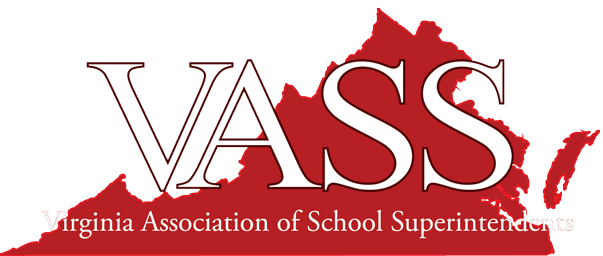VASS Legislative Principles (2019-2020)
VASS is committed to seeking positive changes in public education and fostering what is best for students and staff in the Commonwealth of Virginia. There are certain fundamental principles that are required for the success of all proposed changes. These include the full funding of all mandates passed by the General Assembly and required by the Virginia Board of Education. Also, local school boards should have primary authority in the implementation of these mandates and how resources from State Government are utilized at the local level. In addition to these two basic requirements, school divisions are facing some critical needs and issues.
- The Shortage of Qualified Teachers: JLARC in its 2019 comparison of Virginia to other states ranked the Commonwealth 11th in per capita personal income and 33rd in average teacher salary. If the teacher shortage crisis is to be successfully addressed, Virginia must appropriate state resources to support school districts to create quality teaching and learning environments that cause individuals to pursue the profession and stay in the profession.
- A long-range plan to raise teacher salaries at or above the Virginia income ranking of 11th. VA-$51,049, National (11th)- $65,721(NEA)
- It is recommended that the State provide funding over the next two biennia to allow localities to provide a teacher salary increase of up to 7% per year for all teachers.
- Added state funding is needed for enhanced mentoring programs for new teachers.
- Removal of the SOQ Support CAP will be critical toward this effort.
- Equity of Opportunity for All Virginia Learners:
- The Support Staff Cap, implemented during the Great Recession, disproportionately limits local capacity to serve students with special needs, at-risk students, English learners, etc. Positions such as Mental Health Specialists, Instructional Assistants, and other classroom supports are a cost-effective way to put caring adults in the lives of our most needy students, but the Support Staff Cap arbitrarily excludes the actual cost of educating challenged populations. VASS recommends removing the cap, in phases over the biennium, if necessary.
- SOQ staffing changes recommended by the State Board and required by the revised SOA’s must be accompanied by appropriate state funding in addition to staffing flexibility if qualified applicants cannot be found to fill these added positions. Removal of the SOQ Support CAP will be critical toward this effort.
- Additional state funds for technology and construction/renovations of school facilities are needed to meet SOA requirements and better manage student learning needs.
- Additional state funds are needed to assist with implementation of new Accreditation requirements (i.e. - chronic absenteeism).
- Unfunded Mandates – The last several sessions of the General Assembly have featured many new training requirements imposed on school divisions (i.e. – seclusion and restraint of students and school safety training). New training requirements have a local cost and should be accompanied by state funds to assist at the local level to implement these new state requirements.
- Positions identified in the Standards of Quality should be funded by function (i.e. - curriculum development and support, instructional technology, individual school leadership and student support) rather than individual position title.
- The General Assembly should authorize and fund an independent adequacy study to determine the appropriate level of resources needed for school divisions to meet state accountability requirements. The study should examine particular challenges for schools, such as the effect of concentrations of poverty, accelerated growth, and declining enrollments, and the study should identify the funding required to meet the Standards of Learning, Standards of Accreditation, and Standards of Quality.
- Student discipline: The General Assembly and the State Board have identified the importance that providing added social supports for students has in reducing student discipline problems and school violence
- The General Assembly should provide school divisions with additional funding needed to implement proven methods of preventing and addressing misbehaviors that lead to suspension and expulsion (i.e., VTSS, Restorative Justice, Regional Programs, Virtual Services, and community-based/wrap-around services).
- The General Assembly should provide school divisions with additional funding for local and regional alternative education programs such that alternative education programs are available for elementary and secondary students in every school division.
- Student Safety:
- Added state funding is needed to increase counseling and behavioral assistance to students in school. Funding provided in the current state budget will not meet the new school counselor ratios passed by the General Assembly during the 2019 Session, nor will it enable school divisions to meet the requirement that 80% of counselor time be spent in delivering direct services to students.
- Funding SOQ positions by function instead of by title/ licensure will be critical toward this effort.
- Added state funding is needed to place an SRO/SSO in each school building.
- Dual Enrollment and the Virginia Community College System:
- School divisions and local Community Colleges must have flexibility in setting tuition costs for those courses delivered on-site at the local high school.
- School divisions need greater flexibility in assigning staff to teach dual enrollment courses at the local high school.
- Modernizing the Assessment System to Strengthen Virginia’s Standards of Learning: Recognizing and supporting the progress that the State Board has made in this area, the need now shifts to added time and funding to implement these changes.
